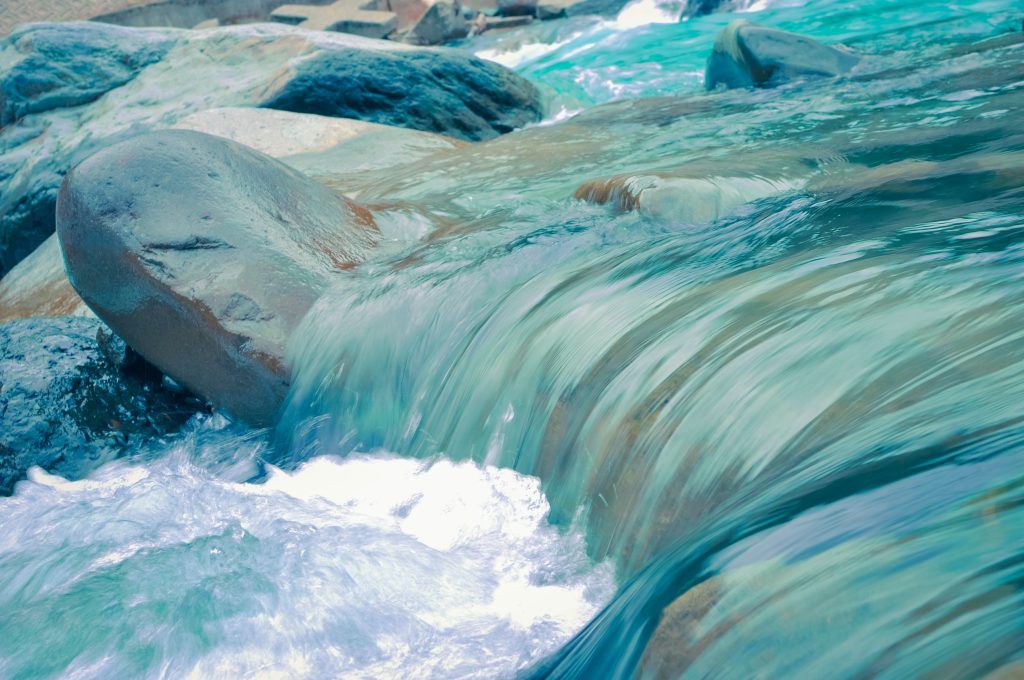Are you tired of second guessing which water filter is best suited for your needs? Look no further! In this article, we will explore the options available in the market and help you make an informed decision. Say goodbye to uncertainty and enjoy the peace of mind that comes with knowing you are using the best water filter for your home. Let’s dive in!

Understanding Different Types of Water Filters
Activated Carbon Filters
Activated carbon filters are one of the most common types of water filters available on the market. These filters are known for their ability to reduce chlorine, sediment, volatile organic compounds (VOCs), and other common contaminants found in tap water. They work by using activated carbon, which has a large surface area to efficiently adsorb impurities from the water. Activated carbon filters are effective in improving the taste and odor of water, making them a popular choice for household use.
Reverse Osmosis Filters
Reverse osmosis (RO) filters use a semi-permeable membrane to remove a wide range of impurities from water. These filters are capable of removing dissolved solids, heavy metals, bacteria, and viruses, making them a highly effective option for purifying water. However, it’s important to note that RO filters also remove beneficial minerals from the water, so it may be necessary to remineralize the water after the filtration process.
UV Filters
UV filters utilize ultraviolet light to disinfect water and eliminate harmful microorganisms such as bacteria and viruses. These filters are particularly useful for people who rely on well water or other untreated water sources. UV filters are known for their ability to destroy bacteria and viruses without adding any chemicals to the water, making them a safe and eco-friendly option.
Infrared Filters
Infrared filters use infrared radiation to enhance the quality of water. These filters produce an electromagnetic field that alters the molecular structure of water, resulting in improved hydration and increased oxygen levels. Infrared filters are also believed to have antioxidant properties and can help reduce the size of water clusters, making it easier for the body to absorb.
Sediment Filters
Sediment filters, also known as particulate filters, are designed to remove large particles and sediments from water. These filters are typically used as a pre-filter to protect other types of filters from clogging. Sediment filters are effective in reducing dirt, sand, rust, and other visible particles, ensuring cleaner and clearer water.
Water Softeners
Water softeners are specifically designed to remove minerals such as calcium and magnesium, which cause hardness in water. These filters use an ion exchange process to replace the minerals with sodium or potassium ions, resulting in softened water. Water softeners are particularly beneficial for households with hard water, as they can prevent scale buildup in pipes and appliances, extend the lifespan of plumbing systems, and improve the effectiveness of soaps and detergents.
Factors to Consider When Choosing a Water Filter
What Does Your Water Test Say
Before choosing a water filter, it is important to have your water tested to determine the specific contaminants present. Different filters are designed to target different contaminants, so understanding your water quality will help you make an informed decision.
The Size of Your Household and Water Consumption
Consider the size of your household and your average water consumption when selecting a water filter. Larger households with higher water consumption may require filters with larger capacities or higher flow rates to meet their needs.
Budget Constraints and Running Costs
Take into account your budget constraints and the long-term running costs of the filter. Some filters may have a higher upfront cost but lower maintenance costs, while others may require frequent filter replacements or have higher energy consumption.
The Installation Process and Maintaining Filter
Consider the installation process and the maintenance requirements of the filter. Some filters are designed for easy installation and filter replacement, while others may require professional installation and more complex maintenance procedures.
The Benefits of Using a Water Filter
Improvement in Water Taste
Using a water filter can significantly improve the taste of tap water by removing chlorine and other contaminants that contribute to an unpleasant taste or odor. Filtered water is often described as cleaner and fresher, making it more enjoyable to drink and use in cooking.
Filtering Out Harmful Contaminants
Water filters play a crucial role in removing harmful contaminants from drinking water. Depending on the type of filter, they can effectively reduce bacteria, viruses, heavy metals, pesticides, and other impurities that may pose a health risk. By filtering out these contaminants, water filters help ensure that the water you consume is clean and safe.
Cost Effectiveness
Investing in a water filter can be cost-effective in the long run. Instead of relying on single-use plastic water bottles or purchasing expensive bottled water, using a water filter allows you to have a continuous supply of clean drinking water at a fraction of the cost.
Environmental Impact
Using a water filter is environmentally friendly compared to relying on bottled water. By filtering tap water instead of purchasing bottled water, you can help reduce plastic waste and minimize the carbon footprint associated with the production and transportation of bottled water.
The Drawbacks of Using a Water Filter
Cost of Installation and Maintenance
Some water filters come with a higher upfront cost, especially those that require professional installation or complex maintenance procedures. Additionally, replacement filters can incur ongoing expenses that need to be considered.
Possibility of Over Filtering
It is important to note that not all contaminants need to be completely removed from drinking water. In some cases, trace amounts of certain minerals and elements can actually be beneficial for health. Over-filtering water through certain types of filters may remove these essential minerals, potentially affecting the overall quality of the water.
Not All Water Filters Remove All Contaminants
Different water filters have varying capabilities when it comes to removing specific contaminants. While some filters excel at removing certain impurities, they may not be as effective against others. It’s important to select a water filter that targets the specific contaminants present in your water supply.

Reviewing Water Filter Brands
Brita Filters
Brita filters are well-known for their activated carbon technology, which effectively removes chlorine and other impurities from tap water. They offer a range of pitcher filters, faucet filters, and under-sink filters to suit different household needs.
PUR Filters
PUR filters are known for their ability to remove a wide range of contaminants, including lead, mercury, and pharmaceuticals. They offer pitcher filters, faucet filters, and refrigerator filters that are easy to install and maintain.
ZeroWater Filters
ZeroWater filters provide a unique 5-stage filtration process that claims to remove virtually all dissolved solids from tap water. They are popular for their ability to produce cleaner and purer tasting water.
Aquasana Filters
Aquasana filters are known for their extensive line of whole-house water filtration systems. They offer a range of filters that target different contaminants and provide clean, filtered water throughout the entire home.
Berkey Filters
Berkey filters are renowned for their gravity-fed systems that can purify both treated and untreated water. They are highly effective in removing a wide range of impurities, making them suitable for a variety of water sources.
Assessing Water Filter Performance
Filtration Speed
The filtration speed of a water filter can impact the convenience of its use. Some filters may have slower filtration rates, which could be a consideration if you need a high volume of filtered water quickly.
Water Taste and Odor
The taste and odor of filtered water should be pleasant and free from any unpleasant smells or flavors. Evaluating the taste and odor of the filtered water can help determine the effectiveness of the filter.
Filter Lifespan
The lifespan of a filter refers to how long it can effectively remove contaminants before it needs to be replaced. Longer filter lifespans can result in fewer filter replacements and lower maintenance costs.
Ease of Installation and Use
Consider the ease of installation and use when choosing a water filter. Some filters may require professional installation, while others may be designed for easy DIY installation. Additionally, filters with easy-to-use features, such as fill-and-pour pitchers or faucet-mounted systems, can simplify the filtration process.

Understanding Water Filter Certifications
NSF International
NSF International is a third-party certification organization that tests and certifies water filters for their ability to effectively remove specific contaminants. Filters with NSF certification have been independently verified to meet strict standards for water filtration.
Water Quality Association (WQA)
The Water Quality Association is another reputable organization that provides certification for water treatment products. WQA certification ensures that a water filter has passed rigorous testing and meets industry standards for performance and quality.
Underwriters Laboratories (UL)
Underwriters Laboratories is a global safety consulting and certification company that evaluates the safety and reliability of various products, including water filters. UL certification indicates that a water filter has been tested and meets specific safety standards.
The Impact of Your Geographic Location on Choosing a Water Filter
Local Water Quality
The quality of tap water can vary depending on your geographic location. Some areas may have higher levels of contaminants, such as heavy metals or chlorine, while others may have specific issues, such as hard water. It is essential to consider the specific water quality in your area when selecting a water filter.
Rural Versus Urban Areas
Rural and urban areas may have different water sources and treatment processes. For example, rural areas may rely on well water, which may have higher levels of bacteria or sediment. Understanding the unique challenges of your location can help determine the most suitable water filter for your needs.
Local Laws and Regulations on Water Filtering
Some areas may have specific laws and regulations related to water filtering. It is important to familiarize yourself with the local regulations to ensure compliance and choose a water filter that meets the necessary standards.
How to Maintain Your Water Filter
Regular Changing of the Filter
Proper maintenance of a water filter involves regular filter replacement. Follow the manufacturer’s guidelines on how often the filter needs to be changed to ensure optimal performance and continued removal of contaminants.
Cleaning the System
Cleaning the water filter system periodically can help prolong its lifespan and maintain its effectiveness. Follow the manufacturer’s instructions for cleaning and sanitizing the filter system to prevent bacterial growth and maintain water quality.
Proper Storage and Handling
If you are not using the water filter for an extended period, it is important to store it properly to prevent the growth of bacteria or mold. Follow the manufacturer’s guidelines for proper storage and handling to ensure the longevity and performance of the filter.
A Detailed Analysis of Top Performing Water Filters
Best Overall Water Filter
The best overall water filter is the Aquasana 3-Stage Under Sink Water Filter. It offers a three-stage filtration process that effectively removes a wide range of contaminants, including chlorine, heavy metals, and VOCs. With easy installation and long-lasting filters, it provides clean and safe water for the entire household.
Best Budget Water Filter
The best budget water filter is the Brita Standard Everyday Water Pitcher with Filter. It offers activated carbon filtration at an affordable price, making it a practical choice for those on a budget. With a compact design and easy-to-replace filters, it provides clean and great-tasting water without breaking the bank.
Best Counter Top Water Filter
The best countertop water filter is the Berkey BK4X2-BB Big Berkey Water Filter System. This gravity-fed system is capable of purifying untreated water from sources such as lakes or rivers. With a large capacity and long-lasting filters, it is an excellent choice for households that prioritize versatility and reliability.
Best Under Sink Water Filter
The best under sink water filter is the APEC Water Systems ROES-50 Essence Series. This reverse osmosis system effectively removes a wide range of impurities, including lead, bacteria, and chemicals. With a compact design and easy installation, it provides purified water directly from your tap for drinking and cooking purposes.
Best Water Filter for Large Families
The best water filter for large families is the Aquasana Whole House Water Filter System. This system is designed to provide clean and filtered water at every tap in the house, ensuring that all family members have access to safe and healthy water. With a high flow rate and long-lasting filters, it is an ideal choice for households with multiple bathrooms and high water consumption.
In conclusion, choosing the right water filter involves considering factors such as water quality, household needs, budget constraints, and filter performance. Understanding the different types of filters, their benefits, drawbacks, and certifications can help you make an informed decision. By selecting a water filter that suits your specific requirements, you can enjoy clean and safe water for drinking, cooking, and other household needs.


